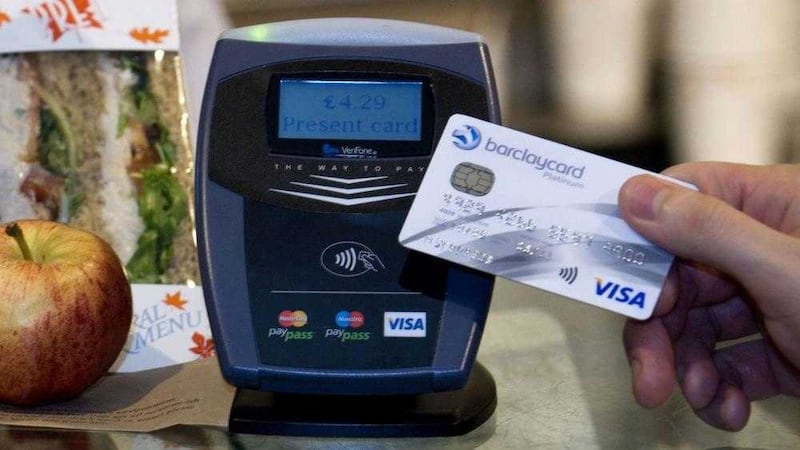RECENT research has shown that nearly a third of shoppers refuse to use contactless cards. The older we are, the less we trust them. The cards were introduced in 2008, the start of the recession and now there are more than 81 million cards and around 320,000 terminals in this country.
Around 22 per cent of those aged under 35 never make contactless payments, the figure almost doubles (43 per cent) for those over 55. The amount spent using these cards last year was £7.75 billion – and the amount lost through fraud was £2.8 million.
The consumer group Which? did tests which discovered that thieves armed with scanners could capture the numbers and expiry dates, then use them for online purchases.
The UK Cards Association countered that by claiming that fraud on contactless cards was extremely rare and that customers were fully protected for fraudulent payments on their cards.
The more technical our financial world becomes, the more elaborate and inventive the fraudulent schemes to try and illegally deprive us of our money, often using similar technology to confuse us into giving away confidential financial information.
Independent financial advisers (IFA), banks and financial watchdogs all warn of these dangers, but these crooks are very sophisticated and believable and are always looking for a new angle.
Common sense plays a big part in protecting yourself and your money – as well as returning to the old ways, such as using a fax machine or landline telephone.
Unfortunately, such are the wonders of modern technology that emails, apparently sent from a familiar address, could be from someone else – and the number showing on your phone from your bank helpline is not the number the call is actually coming from!
No matter how many public adverts, campaigns and warnings regarding that fact that your bank will NEVER ask for personal confidential financial information over the phone or by email, these scams continue to grab the headlines and cost real suffering, financial and otherwise.
Even the purchase or selling of a house is not safe, even when solicitors are involved.
Criminals hack into email accounts and divert large sums, often six figures. This “con” has earned the tag “Friday afternoon fraud” as criminals target transactions that are being processed ahead of the weekend, especially when there’s a bank holiday, to limit the chance of detection.
The financial damage has got so bad that experts are advising those buying and selling property to avoid communicating with their solicitors and conveyancers by email.
This is a relatively new fraud. The crooks gain access to the email accounts of either the victim or their solicitors. They intercept these emails and alter the financial details of where the funds are to be deposited.
Some victims receive emails supposedly from the solicitors the day before completion, claiming their banks details have changed, with the new mandate.
Clearly, any last–minute financial alterations such as this should set alarm bells ringing. It’s true that completion time can be stressful. Many things are coming together and it’s easy to be distracted. But there’s no excuse for being careless.
The chief executive of the government-backed anti-fraud agency, Get Safe Online, told a family member buying a new home to give the payment instructions over the phone.
“You don’t hear of fraud occurring because someone has overheard a phone conversation,” claimed Tony Neate.
Action Fraud, which works alongside the fraud squad, advises the same – people moving large sums should check bank details by phone.
“If you receive an email which tells you that a person or company’s bank details have changed, you must phone to verify it. Preferably talk to the solicitor whose voice you recognize,” said its deputy head.
“Phone spoofing” is also on the rise. Financial Fraud Action UK believes the number of cases doubled in the past year.
That’s when scammers ring your home number, pretending to be from your bank, or the police or another legitimate company – and tell you to call the bank’s helpline number that’s on the back of your card.
Of course, you put the phone down and the scammers remain on the line, even though the number that appears on your display is the one you think you are ringing when you pick it up again.
“The problem is that money can be moved so quickly. It can move from the victim’s account to several different ‘money mules’,” admitted a spokesman from FFA UK.
Some progress has been made in curbing this particular scam. Until recently, crooks could remain on the line for a couple of minutes after you thought the call had ended.
Watchdog Ofcom has worked with the phone networks to reduce this time considerably.
“All mobile operators and major landline providers have been rolling out changes to their phone networks to reduce the time a phone line stays open to a couple of seconds. Figures show this work is already having a big effect on the number of scams being thwarted,” admitted Ofcom.
:: Darren McKeever (dmckeever@ wwfp.net) is Northern Ireland adviser of Worldwide Financial Planning, which is authorised and regulated by the Financial Services Authority. For a free, no obligation initial chat about your individual finances, call 028 68632692, e-mail info@ wwfp.net or click on www. wwfp.net. Follow us on Twitter: @WorldwideFP.







